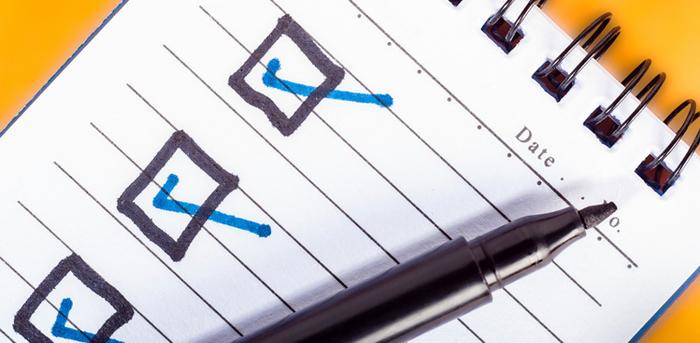
How many times has someone told you to plan before taking action?
In school, we’re told to plan ahead when writing term papers and studying for exams. At work, we’re trained to make a plan before we seek out that new client or start that new project. In general, we’re always being told to look before we leap, plan before we act.
On the flip side, we’re conditioned to avoid procrastination, as it leads to no action being taken. But did you know that over-planning might be just as bad?
Think about it this way: When you procrastinate working on a project, you’re not doing anything to further that project. In other words, the amount of time you’re spending on your actual task is zero. Similarly, when you over-plan, the amount of time you’re spending on working on that project is also zero.
As a recent article on Lifehacker explains, “[r]esearching your options, talking about ideas with your partners, and writing stuff down are all great ways to move forward. But ‘moving forward’ on a project that doesn't go anywhere is no more productive than watching Netflix.”
Bottom line: Your plans don’t mean much if they’re stalling your progress and aren’t moving you toward any actual action.
Sound familiar? If so, here are a few easy steps you can take to prevent over-planning and start getting to work as soon as possible.
1. Set a Goal for How Much Time You’ll Spend Planning
Make sure that this goal gives you a set amount of time to prepare and allots more time for actual action. For example, if you have to a write a complex report, spend 10 minutes outlining it and at least 20-30 minutes at a time actually writing it. That way, your plan was useful, but it didn’t eat up your precious writing time.
2. Encourage Others to Do the Same
If you’re in an office that spends way too much time holding meetings and talking about planning efforts, try to get your team on board with making intentional efforts to spend less time thinking and more time doing.
It’s simple math: One person trying not to waste time isn’t as effective as 10 people trying not to waste time.
3. Plan Your Day in One Swoop
If you really need serious planning time, take an hour out of the beginning of your day to plan how everything is going to go instead of planning a task, completing it, and then starting your planning efforts for the next task.
Think of it the way chefs operate: They typically get out all of their ingredients beforehand and prepare them before they begin cooking so that they don’t have to run around the kitchen later on. If they do have to keep pausing to plan, they typically end up with burnt chicken or overcooked pasta (which isn’t too tasty).
Overall, the first step to making sure you’re being purposeful is to be aware of how much actual time you’re spending on a task. The second you spend more time doing instead of thinking about doing, the more of an impact you’ll make.
Another plus: You’ll also have far less metaphorical burnt chicken.